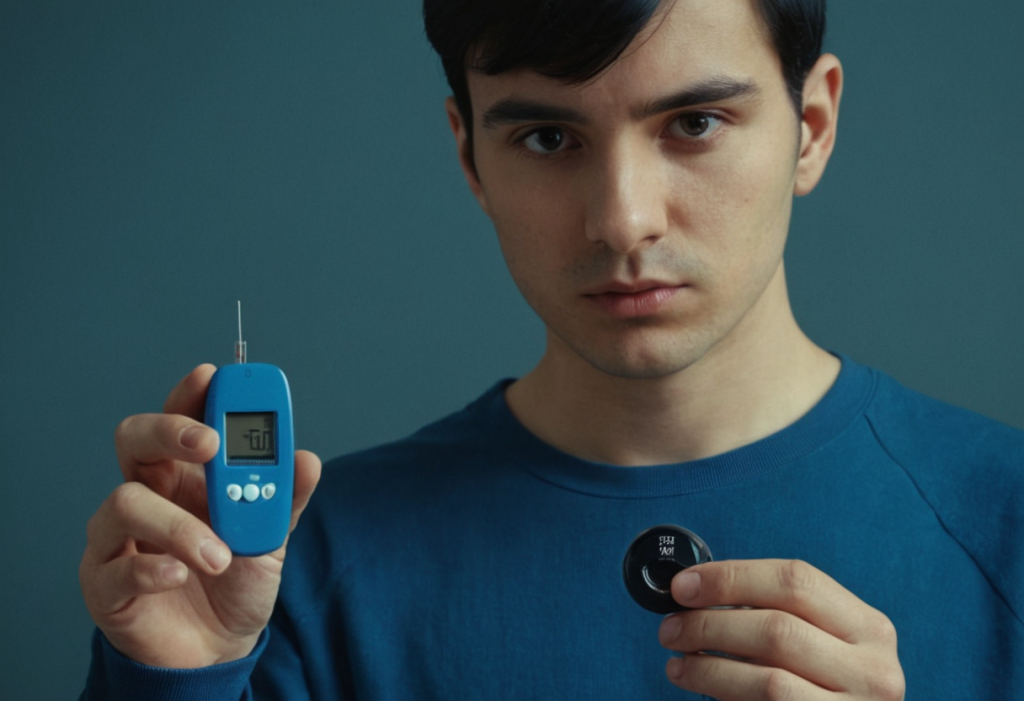Let’s talk truth bombs about type 2 diabetes! One of the biggest myths floating around is that it’s a disease solely reserved for our later years. While it’s true that the risk of developing type 2 diabetes increases with age, here’s the shocker: millions of young adults and even teenagers are living with this condition.

Why the Confusion? Age and Risk, Not a Guarantee
It’s understandable why some might think type 2 diabetes is strictly an “old age” issue. Traditionally, diagnoses were more common in older adults. But here’s the key: age is a risk factor, not a guarantee. Our modern lifestyle – think processed foods, increased screen time, and less physical activity – plays a significant role.
The Data Speaks Volumes: Young Adults and Type 2 Diabetes
According to the Centers for Disease Control and Prevention (CDC), in the United States alone:
- Over 27 million people have diabetes (2023 data) [1].
- Nearly 8 million of those cases are undiagnosed [1].
- Type 2 diabetes accounts for 90-95% of all diagnosed cases [1].
- 1 in 10 adults (aged 18 and over) have diabetes [1].
- Among those diagnosed, 1 in 5 are under the age of 45 [1].
These numbers paint a clear picture: type 2 diabetes is a growing concern for young adults, and the earlier it’s diagnosed and managed, the better.
Why is Early Diagnosis Important?
Left unmanaged, type 2 diabetes can lead to serious health complications like heart disease, stroke, kidney disease, and even vision loss. However, the good news is that type 2 diabetes can be effectively managed through healthy lifestyle changes.
Taking Charge: Empowering Yourself
If you’re concerned about your risk of type 2 diabetes, the power is in your hands! Here are some proactive steps you can take:
- Know your family history: Having a parent or sibling with type 2 diabetes increases your risk.
- Maintain a healthy weight: Even modest weight loss can significantly improve blood sugar control.
- Eat a balanced diet: Focus on whole foods, fruits, vegetables, and lean protein.
- Move your body: Aim for at least 150 minutes of moderate-intensity exercise per week.
- Manage stress: Chronic stress can worsen blood sugar control. Explore relaxation techniques like meditation or yoga.
- Schedule regular checkups: Talk to your doctor about your risk factors and get screened for diabetes.
Remember, type 2 diabetes doesn’t define you! With a proactive approach and support from your healthcare team, you can effectively manage this condition and live a long, healthy life.
Additional Resources:
- Centers for Disease Control and Prevention: https://www.cdc.gov/diabetes/basics/index.html
- American Diabetes Association: https://diabetes.org/
- National Institute of Diabetes and Digestive and Kidney Diseases: https://www.emro.who.int/health-topics/diabetes/index.html
Let’s break the stigma and empower ourselves and young adults to take charge of their health! Share this information with your friends and family, and remember, a healthy lifestyle is the best defense against type 2 diabetes, no matter your age.
E4 Helps you:
E4 Diabetes Solutions offers an innovative continuous glucose monitoring system (CGM) and a comprehensive program called E4 Alive, designed to empower people with type 2 diabetes to take control of their health.
E4 Alive provides a combination of tools and personalized support to help you:
- Better understand your glucose levels: The E4 CGM system provides accurate, real-time data about your glucose levels, allowing you to identify patterns and make informed decisions about your diet and lifestyle.
- Manage your diet: E4 Alive offers resources and tools to help you create a healthy eating plan tailored to your individual needs.
- Embrace an active lifestyle: The E4 Alive program motivates and supports you in incorporating regular physical activity into your daily routine.
- Connect with a community: E4 Alive provides access to a community of people with type 2 diabetes who share experiences and offer mutual support.
By joining E4 Alive, individuals with type 2 diabetes can:
- Reduce their blood glucose levels
- Improve their long-term glycemic control
- Lower their risk of diabetes-related complications
- Enhance their overall quality of life
E4 Alive is an opportunity for those with type 2 diabetes to take charge of their health and live a fuller life.
To learn more about E4 Diabetes Solutions and the E4 Alive program, visit THIS PAGE.

Type 2 Diabetes: Is It Really Reversible?
A recent National Geographic article [link] explores how type 2 diabetes could be reversible with the right approaches. This condition, which affects millions of people worldwide, has long been considered a chronic and progressive disease. However, recent research challenges this perception and suggests that with lifestyle changes and the right approach, remission is possible. The

How Do GLP-1 Drugs Compare? A Breakdown of Ozempic, Mounjaro, and Trulicity
GLP-1 receptor agonists have revolutionized diabetes management, with drugs like Ozempic, Mounjaro, and Trulicity leading the market. But how do these medications compare in terms of effectiveness, side effects, and patient outcomes? Let’s explore their differences and what they mean for diabetes patients. Understanding GLP-1 Medications GLP-1 receptor agonists mimic a natural hormone that helps

Why Has Medicare Spending on Diabetes Medications Skyrocketed in 5 Years?
In the past five years, Medicare spending on diabetes medications has increased nearly fivefold, reaching $35.8 billion in 2023. This surge has been primarily driven by the growing use of GLP-1 drugs such as Ozempic, Mounjaro, and Trulicity. But what is behind this cost escalation, and how does it affect patients and the U.S. healthcare

The Gut Microbiota and Blood Sugar Control: A Hidden Connection
The human gut is home to trillions of bacteria that play a crucial role in digestion, immune function, and even metabolism. Recent research has revealed a fascinating link between the gut microbiota and blood sugar regulation, shedding light on how the balance of microbes in our intestines can influence diabetes risk and overall metabolic health.

The Dawn Phenomenon: Why Blood Sugar Rises While You Sleep
For many people with diabetes, waking up with high blood sugar levels can be frustrating—especially if they didn’t eat anything overnight. This early-morning spike in blood glucose is known as the Dawn Phenomenon, and it happens due to natural hormonal changes in the body. But why does it occur, and how can it be managed?

The Influence of Red Light on Blood: Can It Improve Diabetes?
Type 2 diabetes is a metabolic disease characterized by insulin resistance and elevated blood glucose levels. In the search for complementary alternatives to improve glycemic control, red light therapy has gained attention due to its potential to enhance circulation, reduce inflammation, and optimize cellular function. But what does science say about it? ✨ What is

